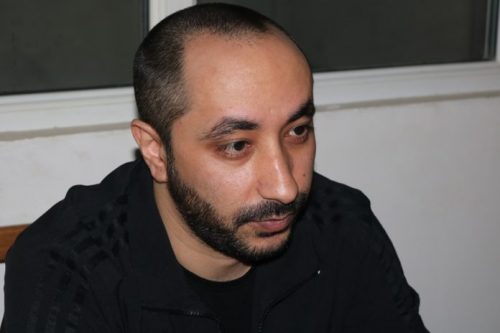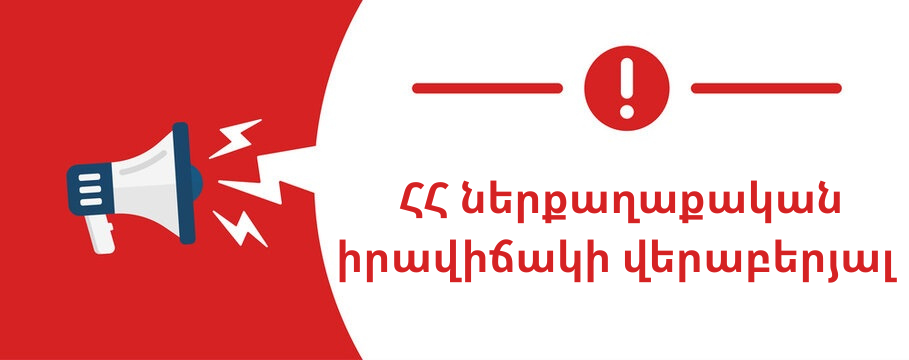On 14 October 2019, the body conducting the proceedings of Artur Kocharyan, who received a life sentence in 2005, made a decision to discontinue the proceedings and not to conduct criminal prosecution against military police officers. HCA Vanadzor has touched upon A. Kocharyan’s issue in previous publications.
HCA Vanadzor advocates Arayik Zalyan and Ani Chatinyan, who are A. Kocharyan’s defenders, appealed the decision to the RA Prosecutor General. The Head of the Department of Supervision over Pretrial Proceedings in the RA SIS of the Prosecutor General’s Office decided to refuse it.
Finding that the decision of the body conducting the proceedings was made by violation of criminal procedural norms and caused violation of A. Kocharyan’s rights and freedoms and is subject to elimination, the advocates submitted an appeal-complaint to Yerevan General Jurisdiction Court.
Invoking a number of Articles of the Constitution, European Court of Human Rights and RA Criminal Procedure Code, A.Zalyan and A.Chatinyan presented compelling substantiationsin the submitted appeal. They could have been crucial in terms of the outcome of the case, had they been taken into account by the body conducting the proceedings.
In particular, the appeal contained arguments evidencing violations of A. Kocharyan’s right to be free from torture and his right to liberty and security.
Besides the substantiations of violations of material rights, HCA Vanadzor advocates pointed out the fact that procedural conditions necessary for investigation of ill-treatment cases were not observed.
The body conducting the proceedings did not conduct full, comprehensive and objective investigation, actions that would be aimed at the discovery of the crime and punishment of those guilty.
Having at hand testimonies on ill-treatment against the injured party of the criminal case, the investigator did not take proper efforts to recognize the fact of the violation of the right to be free from ill-treatment and the right to personal liberty, to conduct an effective investigation and discover all the details of the incident.
The advocates particularly touched upon the testimonies of the witnesses. The study of the materials of the case created an impression that the body conducting the proceedings had not interrogated them. They simply made duplicate protocols on the same printed blank.
The same style and sloppy formulations, the same words and sentences indicate that the investigation conducted was of perfunctory nature. The investigator groundlessly refused numerous petitions to interrogate one of the defendants of the case. Whereas, it could essentially change the outcome of the case. Besides, no legal assessment was given to the inaction of all the judges of the case and the prosecutors protecting the accusation, who learnt in the court about the allegations of forced extortion of testimonies by violence and beating, but did not take proportional steps. The presented and many other investigative and procedural actions could have an essential role both for the outcome of the case and for the discovery of torture, inhuman and degrading treatment.
According to the advocates, the implemented investigative and procedural actions, by their nature and technique of implementation, did not lead to the discovery of the crime, which is an important condition to become a subject of judicial investigation, and the obligation to ensure effective investigation must be placed upon the body conducting the proceedings.
Having studied the appeal and the related materials for about 1 year and having heard the parties, the Court found that it was grounded and subject to be upheld.
Invoking a number of articles of the RA Constitution and the Criminal Procedure Code, the Court recorded that everyone has the right to effective judicial protection of their rights and freedoms.
Invoking the positions of the RA Cassation Court and the ECHR in similar cases, the Court also attached importance to the condition that the state’s positive obligation to conduct the investigation must be implemented quickly and properly. The competent bodies must make the most serious efforts to discover what happened and not to make unjustified and ill-grounded hasty decisions. They must take all the reasonable steps to ensure all the proofs related to the incident, including medical ones, as well as interrogation of witnesses, etc.
In this regard, the Court paid particular attention to the reasoning of the decision to discontinue the proceedings, according to which, “…the circumstances that the Military Police employees subjected Artur Kocharyan, Avetik Tumanyan and Surik Chobanyan to violence and beating to extort a confession testimony in the criminal case have not been substantiated, all the opportunities to obtain new proofs have been exhausted”.
Based on the aforementioned, the Court recorded the condition of violation of A. Kocharyan’s rights. The Court noted that the reasoning as if all the opportunities to obtain new proofs had been exhausted did not stem from the materials of the criminal case and the relevant legal regulations.
The Court touched upon the matter of the observance and implementation of torture investigation standards by the body conducting the proceedings and concluded that the preliminary investigation body had not properly ensured the standards of effective investigation and the proofs necessary for the case by not conducting a detailed investigation. This contradicts the position of the Court of Cassation, which is as follows, “in the frame of torture or ill-treatment cases, it is not the confirmation of the information presented by the alleged victim that has key importance, but rather, the complex of the measures taken to discover the details of that information, which will make it possible to have the full picture of the circumstances of the case”.
The Court recorded that among investigative and procedural actions, not assigning a forensic psychological expertise (as the advocates have mentioned in the appeal) itself indicates the conduction of incomplete investigation. The testimonies of the same content given by different persons objectively create the perception that they are perfunctory.
The Court concluded that the body conducting the proceedings had not ensured the conduction of the investigation fully, objectively and comprehensively at the same time, as well as the standards (recorded by the Cassation Court) of conducting effective investigation into torture cases.
The Court decided to uphold the appeal made by HCA Vanadzor advocates A. Zalyan and A. Chatinyan on the grounds that the investigator had not taken all the measures to discover and punish those guilty by thus violating A.Kocharyan’s right to have a full, objective and comprehensive investigation into the case of torture against him. By the decision, the Court also obliged the body conducting the proceedings to eliminate the violations of A.Kocharyan’s rights.
The Prosecutor conducting supervision appealed the Court’s decision to the RA Court of Criminal Appeals.




